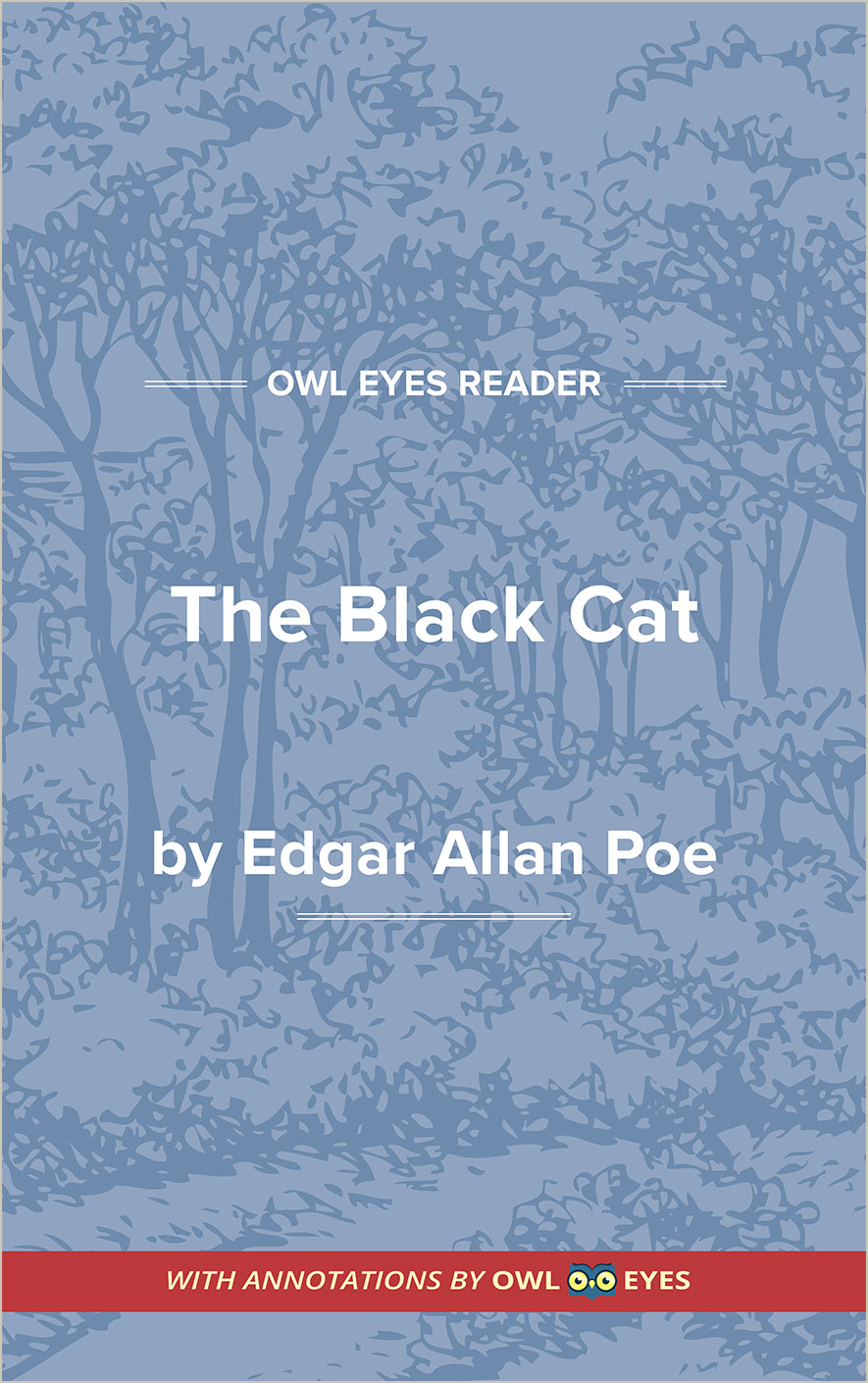Analysis Pages
Themes in The Black Cat
Alcoholism: The plot is primarily propelled by the protagonist’s vice, alcoholism or, as he calls, it “the Fiend Intemperance.” This fiend divides the character’s soul in two, and so he takes on an increasingly divided nature as the story goes on. There is his sensible self, aware of and surprised by his own potential for darkness. There is also his darker self, endlessly thirsty for gin and filled with a desire to inflict violence.
Sin: Throughout the story, the protagonist struggles with Christian morality. As his own actions become increasingly perplexing and violent, he grows concerned that he has strayed from the commandments of the Christian God. Despite his sense of personal wrongdoing, he is unable to correct himself. As the story comes to its conclusion, the protagonist makes a plea to God, crying, “But may God shield and deliver me from the fangs of the Arch-Fiend!” But it is too late. The only reply is the cat’s devilish wail from within the sealed wall.
Guilt: The titular cat, Pluto, serves many symbolic and thematic functions in the story. One of these functions is as a symbol of the narrator’s guilt. Once the protagonist has embarked on his path of alcohol-fueled rage, the sight of Pluto fills him with guilt and self-loathing. The protagonist attacks Pluto, which only deepens his guilt. In the final act of the story, the protagonist murders his wife. Unsurprisingly, he begins searching for Pluto to kill the cat and, on a symbolic level, put an end to his guilt. The great irony is that the protagonist has buried Pluto alive along with his wife. In the last scene, the cat’s wails reveal the location of the wife’s body and announce the protagonist’s guilt.
Themes Examples in The Black Cat:
The Black Cat
🔒"My heart beat calmly as that of one who slumbers in innocence. I walked the cellar from end to end...." See in text (The Black Cat)
"“Here at least, then, my labor has not been in vain.”..." See in text (The Black Cat)
"Many projects entered my mind...." See in text (The Black Cat)
"By slow degrees, these feelings of disgust and annoyance rose into the bitterness of hatred...." See in text (The Black Cat)
"I had walled the monster up within the tomb!..." See in text (The Black Cat)
"And a brute beast—whose fellow I had contemptuously destroyed—a brute beast to work out for me—for me a man, fashioned in the image of the High God—so much of insufferable wo!..." See in text (The Black Cat)
"Although I thus readily accounted to my reason,..." See in text (The Black Cat)
"a deadly sin that would so jeopardize my immortal soul as to place it—if such a thing were possible—even beyond the reach of the infinite mercy of the Most Merciful and Most Terrible God...." See in text (The Black Cat)
"Yet I am not more sure that my soul lives, than I am that perverseness is one of the primitive impulses of the human heart—one of the indivisible primary faculties, or sentiments, which give direction to the character of Man...." See in text (The Black Cat)
"My original soul seemed, at once, to take its flight from my body; and a more than fiendish malevolence, gin-nurtured, thrilled every fibre of my frame...." See in text (The Black Cat)
"But my disease grew upon me—for what disease is like Alcohol!..." See in text (The Black Cat)
"Hereafter, perhaps, some intellect may be found which will reduce my phantasm to the common-place..." See in text (The Black Cat)

